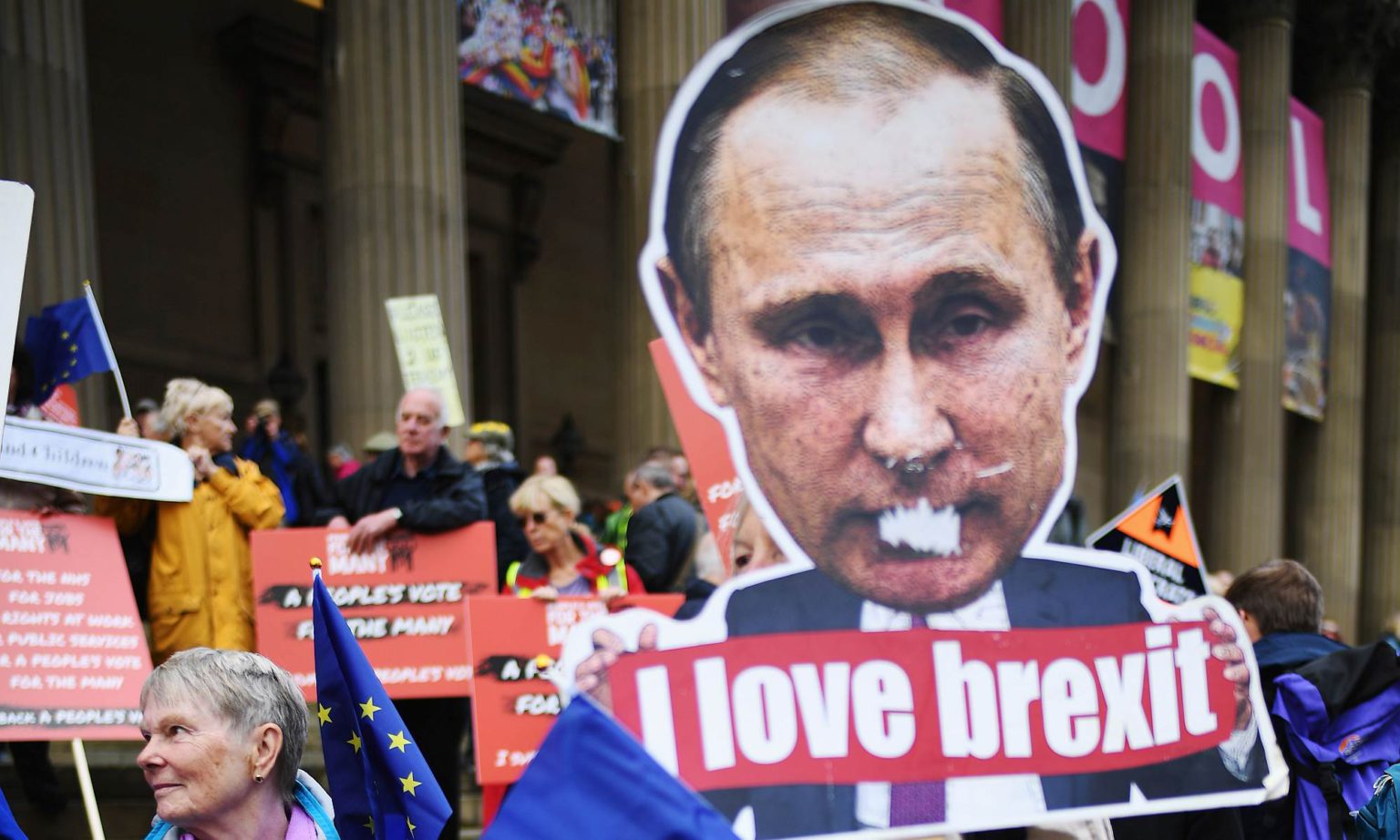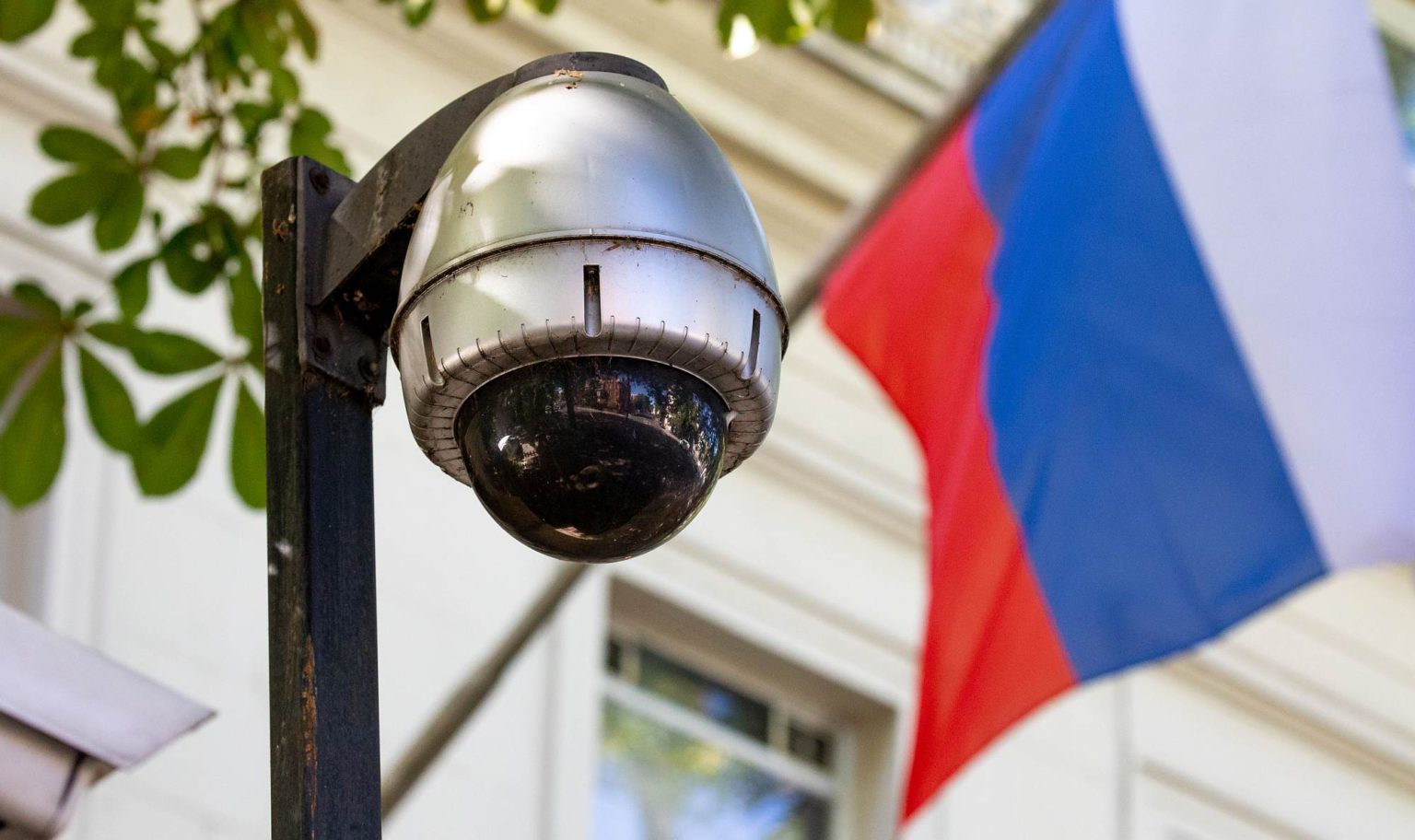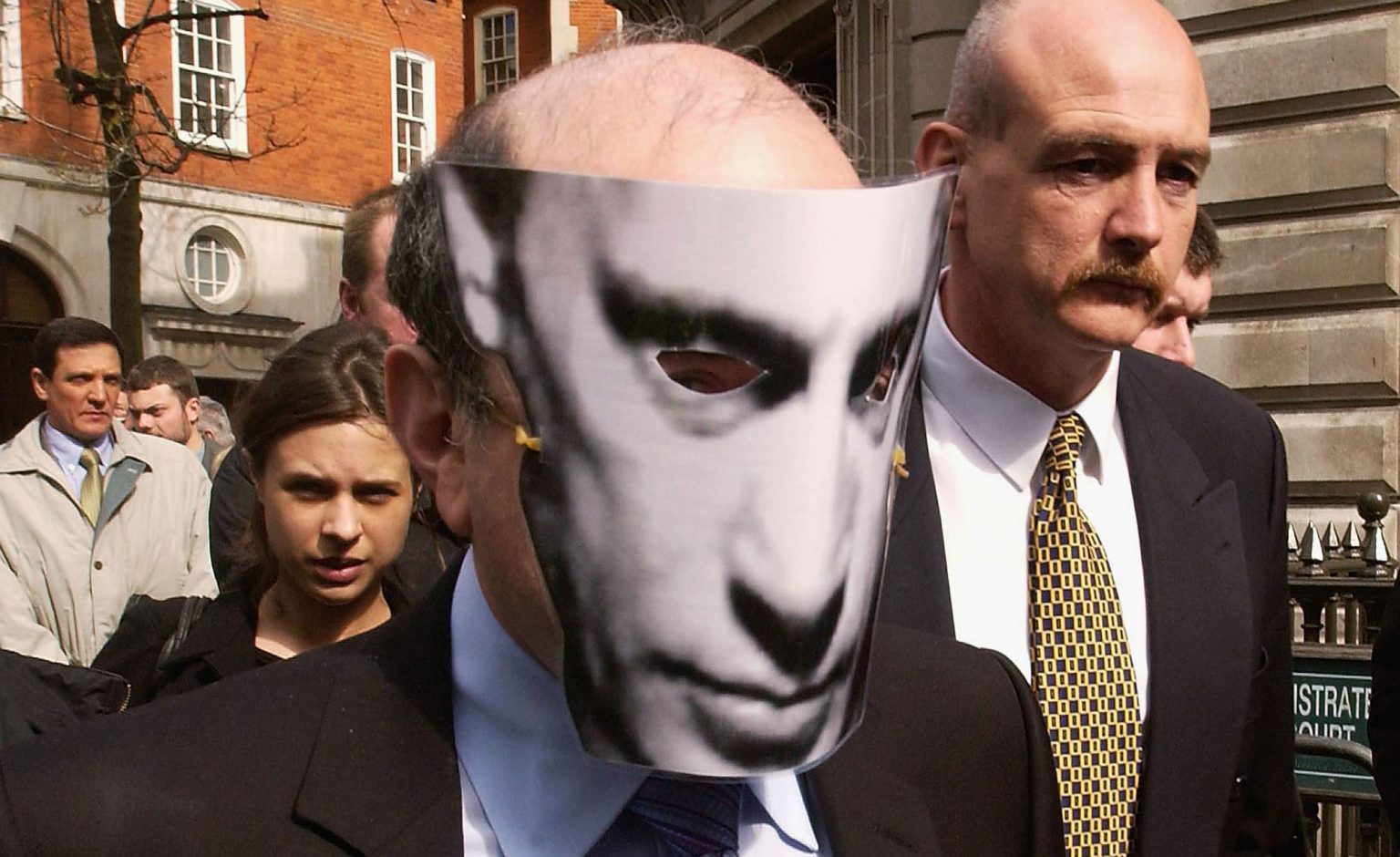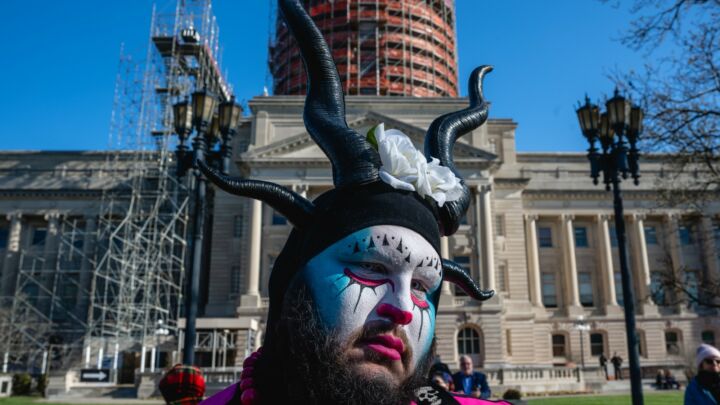
Long-read
The Russia delusion
Cold War-style paranoia continues to grip the UK's political and media class.
On Saturday, 26 September, The Times published an intriguing correction in the discreet corner of the Letters page it reserves for the consumption of humble pie. The correction referred to an article about political donations and an individual called Alexander Temerko, described as ‘a British citizen, Conservative Party donor and prominent critic of the Putin regime’.
The problem, it appears, was that this was not the impression the paper had given in an article two months before, at least not to Temerko and his lawyers. In what may have been an expensive clarification, The Times said: ‘We did not intend to suggest that Mr Temerko, whether through political donations or otherwise, is engaged or associated with any illicit activities on behalf of the Russian state, and we are happy to make that clear. We apologise to Mr Temerko for any contrary suggestion conveyed by this or previous articles published in The Times.’
Obviously, this is one individual, and when writing to a deadline we can all make mistakes. But the nature of the mistake is telling. The fact that such an error could make its way into print, and apparently more than once, highlights how casually it is assumed in UK political and media circles that anyone with a Russian-sounding name is Russian, and that all Russians are super-rich bad-hats – particularly, but not exclusively, Russians living in London – and enjoy the patronage of President Vlad ‘the impaler’ Putin.
Alexander Temerko was at pains to establish that he was not one of these dodgy types – and nor, I should perhaps point out, am I. (My name is my married name and my late husband was the son of Second World War Russian-Ukrainian refugees.) But the stereotype is now so thoroughly accepted among people who should really know better that it is almost impossible to dislodge, even as it damages relations between Britons and Russians on a social level and poisons relations between the two states.
If you don’t believe me on the first score, ask almost any Russian working or studying in the UK what they think about British coverage of their country and you will receive a torrent of complaints about hostile tabloid headlines and official presumptions of Russian malfeasance. In venturing a different view, when speaking on panels or in debates, I am invariably greeted afterwards by a succession of young UK-based Russians who are abjectly grateful to anyone who speaks their language and rejects the knee-jerk demonisation of Russia and all its works.
But it is the damage to state-to-state relations where the cost may be greatest. Not only does the negative stereotyping of Russia and its people tar a whole complicated country with the same hostile brush, it fosters a misreading of Russia and its intentions that becomes ever harder to remedy. Brexit Britain will need all the friends it can get; why, 30 years after the disintegration of the Soviet Union, is the elite consensus in this country that Russia remains our No1 Enemy?
The idea of Russians as alien and a threat goes back a very long way and has been admirably traced – and challenged – by Mark Smith in his 2019 book, The Russia Anxiety. But it has flourished particularly in the past 20 years, coinciding with Vladimir Putin’s time as Russia’s president. And it is worth asking why, especially as, for the most part, the antipathy is not mutual.
It is true that Russian views of the UK today retain something of the quaint stereotypes from the Soviet era – Dickensian poverty, the class divide and London fog. ‘Perfidious Albion’ remains a pervasive theme, as it does in many countries. But there is also respect for what is seen (at least until recently) as the stability and order of the UK, and envy of the social cachet that attaches to a British public-school education, an RP English accent and old-fashioned English manners. To this extent, a small part of post-Soviet Russian society can be said to have reverted to the Anglophilia it displayed in the 19th century.
This makes the suspicion and fear on the British side all the harder to understand. Many clues as to their origin, however, are to be found in the parliamentary Intelligence and Security Committee’s long-delayed Russia Report – whose eventual publication, in July, was the context for the article that Alexander Temerko so objected to in The Times.

The heavily redacted report was the result of an inquiry set up in November 2017 to look into allegations of Russian interference in British politics – a purpose which already set the negative tone. And it did its job. Amid much huffing and puffing about the dire threat that Russia still poses to the UK, the report rehearsed all the usual charges.
It was a country that luxuriated in imperial nostalgia for the Soviet Union. It was a weak country that had nonetheless learned to exploit its weakness to nefarious effect. It had a history of aggression towards its neighbours, a ‘pattern’ of murdering enemies in exile (then denying it), and an addiction to spreading disinformation and interfering in other people’s elections. Oh yes, and for good measure, probably most expatriate Russians in the UK were a fifth column for the Kremlin.
The report claimed to rely to a large, but unknown, extent on intelligence information – while also concluding that the aforesaid agencies were asleep on the job when it came to Russian interference. Another conclusion might have been that there was in fact no interference – which was the one reached by the Information Commissioner, Elizabeth Denham, after three years spent investigating Cambridge Analytica. But that is by the by.
One reason why the ISC did not, indeed could not, reach this conclusion can be found in the list of witnesses called to testify. All five (yes, just five) are longtime cold warriors with a deep antipathy towards today’s Russia. They included Christopher Steele – the former MI6 officer who became better known as the compiler of the dubious ‘golden shower’ dossier on Donald Trump. With a cast of such unanimity, the ISC could have reached no other conclusions than it did.
And this, more than anything else, may explain why the prevailing political and media view of Russia has remained so hostile for so long. It has been influenced and reinforced by a relatively small, but impassioned, coterie made up of people who project their experience of the Cold War and the chaotic years after the Soviet collapse on to the Russia of today.
Their view dominates the UK media – including now the left-of-centre Guardian – leaving little space even for nuance, let alone dissent. It has much of politics, academia, the think-tank world and the diplomatic corps in its thrall. Their argument is either that the Soviet collapse in fact changed very little, or that the heady freedoms of the 1990s (a time most Russians now see as an anarchic period of violence, hyperinflation and extreme poverty) have been progressively reversed by the Tsar-dictator, Vladimir Putin.
Russia, they insist (and with them many younger commentators who never knew the fear and deprivation of Soviet reality), is on a fast-track back to Stalinism. Which is where I wish that they could spend the same 10 months that I, and some other British students of Russian, spent as exchange students in the Soviet provinces all those years ago, so that they could at least acknowledge the transformation.
The continued dominance of Soviet-era specialists and their pupils, whose views tap into a centuries’ old British suspicion of Russia, may account for much of the ingrained anti-Russian sentiment in UK politics and media today. But there are other, more recent, factors, too.
One is the negative impression created by the early waves of ‘new’ Russians for whom London was the post-1991 destination of choice. Brash, unrefined and flashing their dubiously acquired cash, they were hard to ignore. Their well-publicised property purchases were resented as pricing natives out of housing that was rightly theirs (although it never had been). In a word, there was a large element of sheer, old-fashioned snobbery. They were not, to put it mildly, our people – which is why, perhaps, some chose to buy their way into belonging, through entirely legal fast-tracked citizenship and charitable donations, including to political parties.
Another factor, often ignored, is the very real Russian interference in UK politics that has come not from Putin’s friends, but from his enemies. As Temerko’s complaint illustrated, along with those Russian expatriates who remain on good terms with the Russian president are a good number of forced or voluntary exiles, at least some of whom use their considerable resources to bend the ears of legislators and opinion-formers in their adopted land.
One of the most egregious of these was tycoon – to some, the original oligarch – Boris Berezovsky, who fled Russia after falling out with Putin in 2000 and thereafter used his safe perch in the UK to plot against his former boss. He harnessed other exiles to his cause, including Alexander Litvinenko, and a clutch of leading Chechens, who were fighting a war for independence from Moscow and attracted a following of influential romantics, such as Vanessa Redgrave.

Berezovsky’s millions also smoothed his way into the UK’s corridors of power, where he dripped his poison to kill off any effort to improve UK-Russia relations. Berezovsky killed himself – or was killed – in 2013, seven years after Litvinenko died from radiation poisoning in London. Nowadays it is the one-time oil magnate, Mikhail Khodorkovsky, who plies his anti-Kremlin operation from London, though less brazenly than the now largely discredited Berezovsky.
It is not only anti-Putin exiles who have helped to fuel anti-Russian sentiment in the UK today, however. The diplomatic efforts of former Soviet and Eastern bloc states have assisted, too. And while it is understandable that countries such as Poland and the Baltic States should harbour a deep sense of grievance against Russia, as well as fearing its military might, there is no reason – other than the luxury of distance and perhaps a common sense of sovereignty – why the UK should have become such an ardent champion of their anti-Russia stance inside NATO and, before Brexit, the EU.
The national interest should dictate otherwise. Germany and France have long managed to balance public criticism of some Russian actions – the annexation of Crimea, the treatment of political opponents, cyber-attacks – with mutually beneficial trade and constructive dialogue, while accommodating divergent views about Russia. The UK seems to find this far more difficult.
One key as to why might be found in observations made by a senior Russian diplomat a few years ago, when I asked him why relations between our two countries were so consistently bad. He said that he thought it made the UK feel good to have a ‘big enemy’, and that the particularly harsh tone of many UK statements might be an effort to compensate in words for its lack of real clout. It often seemed, he said, to be ‘yapping from the sidelines double forte in support of US policy’.
Unintentionally, perhaps, the ISC Russia report goes some way towards corroborating this, saying:
‘It appears that Russia considers the UK one of its top Western intelligence targets: while we may not experience the level and type of threat that countries on Russia’s borders suffer, witnesses have suggested that we would sit just behind the US and NATO in any priority list. This is likely to be related to the UK’s close relationship with the US, and the fact that the UK is seen as central to the Western anti-Russian lobby.’
This sounds a lot like the UK essentially using the Russia ‘threat’ to big itself up. And, because the notion of Russia as a direct threat to UK security seems so unrealistic, perhaps this also helps to explain the periodic reports of Russia nearly but not quite violating our air or sea space – reports that invariably turn out to be a response to infractions on our part.
A point has now been reached where a broad swathe of the UK elite – not least the defence and security establishment, with their budgets in mind – finds advantage in casting Russia as the enemy. They have fallen for a narrative that finds ‘a pattern of Russian behaviour’ where the only pattern is a rush to judgement on our part that precludes any open or honest investigation of mysterious cases, such as those of Litvinenko or the Skripals, and any attempt to understand why Russia might have snatched Crimea or be buzzing our ships. That gulf of understanding is a major, and needless, impediment to the UK’s diplomacy.
The better news – and there is some – is that bubbling away below the surface of a seemingly cast-iron consensus of negativism are more critical and constructive views. On social media, on phone-ins, and below the line of hardline newspaper articles you can often find quite a different tone. Those Britons, for instance, who defied official doomwatchers to travel to Russia for the World Cup two years ago came back questioning the contrast between what they experienced and what they had been told.
A new generation of scholars and commentators is also starting to emerge. Scholars and commentators who actually go to Russia and understand that, in their consumerism, their appetite for information and their desire to see the world, Russians are less different from us than they have ever been. Threat, what threat? If only the visa regime could be relaxed to facilitate more travel when the pandemic retreats; if only more Britons learned Russian; if only our leaders would finally grasp that the Russia of now is nothing like the Soviet Union of then, we might just start to see Russia as it is, rather than the looming threat so many fear it to be.
Mary Dejevsky is a writer and broadcaster. She was Moscow correspondent for The Times between 1988 and 1992. She has also been a correspondent from Paris, Washington and China.
All pictures by: Getty.
To enquire about republishing spiked’s content, a right to reply or to request a correction, please contact the managing editor, Viv Regan.








Comments
Want to join the conversation?
Only spiked supporters and patrons, who donate regularly to us, can comment on our articles.